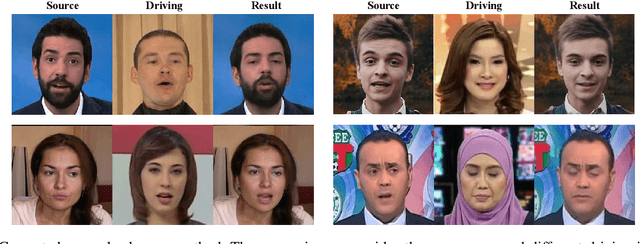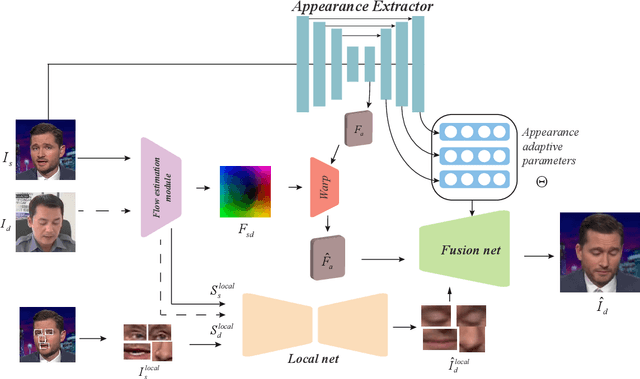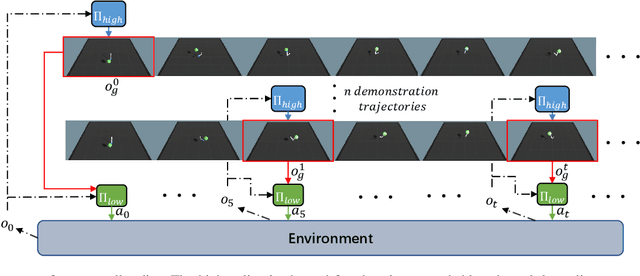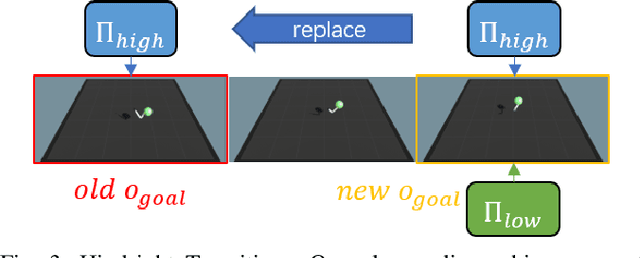Shanqi Liu
Safe and Efficient Online Convex Optimization with Linear Budget Constraints and Partial Feedback
Dec 05, 2024Abstract:This paper studies online convex optimization with unknown linear budget constraints, where only the gradient information of the objective and the bandit feedback of constraint functions are observed. We propose a safe and efficient Lyapunov-optimization algorithm (SELO) that can achieve an $O(\sqrt{T})$ regret and zero cumulative constraint violation. The result also implies SELO achieves $O(\sqrt{T})$ regret when the budget is hard and not allowed to be violated. The proposed algorithm is computationally efficient as it resembles a primal-dual algorithm where the primal problem is an unconstrained, strongly convex and smooth problem, and the dual problem has a simple gradient-type update. The algorithm and theory are further justified in a simulated application of energy-efficient task processing in distributed data centers.
True Knowledge Comes from Practice: Aligning LLMs with Embodied Environments via Reinforcement Learning
Jan 25, 2024



Abstract:Despite the impressive performance across numerous tasks, large language models (LLMs) often fail in solving simple decision-making tasks due to the misalignment of the knowledge in LLMs with environments. On the contrary, reinforcement learning (RL) agents learn policies from scratch, which makes them always align with environments but difficult to incorporate prior knowledge for efficient explorations. To narrow the gap, we propose TWOSOME, a novel general online framework that deploys LLMs as decision-making agents to efficiently interact and align with embodied environments via RL without requiring any prepared datasets or prior knowledge of the environments. Firstly, we query the joint probabilities of each valid action with LLMs to form behavior policies. Then, to enhance the stability and robustness of the policies, we propose two normalization methods and summarize four prompt design principles. Finally, we design a novel parameter-efficient training architecture where the actor and critic share one frozen LLM equipped with low-rank adapters (LoRA) updated by PPO. We conduct extensive experiments to evaluate TWOSOME. i) TWOSOME exhibits significantly better sample efficiency and performance compared to the conventional RL method, PPO, and prompt tuning method, SayCan, in both classical decision-making environment, Overcooked, and simulated household environment, VirtualHome. ii) Benefiting from LLMs' open-vocabulary feature, TWOSOME shows superior generalization ability to unseen tasks. iii) Under our framework, there is no significant loss of the LLMs' original ability during online PPO finetuning.
Adaptive Value Decomposition with Greedy Marginal Contribution Computation for Cooperative Multi-Agent Reinforcement Learning
Feb 14, 2023Abstract:Real-world cooperation often requires intensive coordination among agents simultaneously. This task has been extensively studied within the framework of cooperative multi-agent reinforcement learning (MARL), and value decomposition methods are among those cutting-edge solutions. However, traditional methods that learn the value function as a monotonic mixing of per-agent utilities cannot solve the tasks with non-monotonic returns. This hinders their application in generic scenarios. Recent methods tackle this problem from the perspective of implicit credit assignment by learning value functions with complete expressiveness or using additional structures to improve cooperation. However, they are either difficult to learn due to large joint action spaces or insufficient to capture the complicated interactions among agents which are essential to solving tasks with non-monotonic returns. To address these problems, we propose a novel explicit credit assignment method to address the non-monotonic problem. Our method, Adaptive Value decomposition with Greedy Marginal contribution (AVGM), is based on an adaptive value decomposition that learns the cooperative value of a group of dynamically changing agents. We first illustrate that the proposed value decomposition can consider the complicated interactions among agents and is feasible to learn in large-scale scenarios. Then, our method uses a greedy marginal contribution computed from the value decomposition as an individual credit to incentivize agents to learn the optimal cooperative policy. We further extend the module with an action encoder to guarantee the linear time complexity for computing the greedy marginal contribution. Experimental results demonstrate that our method achieves significant performance improvements in several non-monotonic domains.
One-shot Face Reenactment Using Appearance Adaptive Normalization
Feb 20, 2021



Abstract:The paper proposes a novel generative adversarial network for one-shot face reenactment, which can animate a single face image to a different pose-and-expression (provided by a driving image) while keeping its original appearance. The core of our network is a novel mechanism called appearance adaptive normalization, which can effectively integrate the appearance information from the input image into our face generator by modulating the feature maps of the generator using the learned adaptive parameters. Furthermore, we specially design a local net to reenact the local facial components (i.e., eyes, nose and mouth) first, which is a much easier task for the network to learn and can in turn provide explicit anchors to guide our face generator to learn the global appearance and pose-and-expression. Extensive quantitative and qualitative experiments demonstrate the significant efficacy of our model compared with prior one-shot methods.
HILONet: Hierarchical Imitation Learning from Non-Aligned Observations
Nov 05, 2020



Abstract:It is challenging learning from demonstrated observation-only trajectories in a non-time-aligned environment because most imitation learning methods aim to imitate experts by following the demonstration step-by-step. However, aligned demonstrations are seldom obtainable in real-world scenarios. In this work, we propose a new imitation learning approach called Hierarchical Imitation Learning from Observation(HILONet), which adopts a hierarchical structure to choose feasible sub-goals from demonstrated observations dynamically. Our method can solve all kinds of tasks by achieving these sub-goals, whether it has a single goal position or not. We also present three different ways to increase sample efficiency in the hierarchical structure. We conduct extensive experiments using several environments. The results show the improvement in both performance and learning efficiency.
Moving Forward in Formation: A Decentralized Hierarchical Learning Approach to Multi-Agent Moving Together
Nov 04, 2020



Abstract:Multi-agent path finding in formation has many potential real-world applications like mobile warehouse robots. However, previous multi-agent path finding (MAPF) methods hardly take formation into consideration. Furthermore, they are usually centralized planners and require the whole state of the environment. Other decentralized partially observable approaches to MAPF are reinforcement learning (RL) methods. However, these RL methods encounter difficulties when learning path finding and formation problem at the same time. In this paper, we propose a novel decentralized partially observable RL algorithm that uses a hierarchical structure to decompose the multi objective task into unrelated ones. It also calculates a theoretical weight that makes every task reward has equal influence on the final RL value function. Additionally, we introduce a communication method that helps agents cooperate with each other. Experiments in simulation show that our method outperforms other end-to-end RL methods and our method can naturally scale to large world sizes where centralized planner struggles. We also deploy and validate our method in a real world scenario.
 Add to Chrome
Add to Chrome Add to Firefox
Add to Firefox Add to Edge
Add to Edge